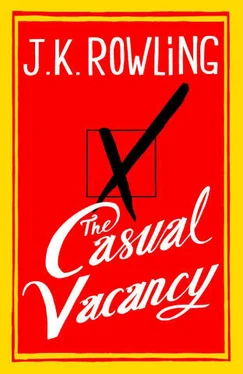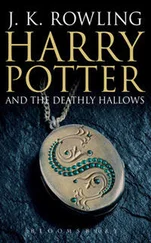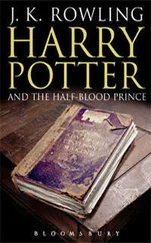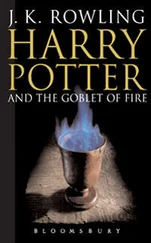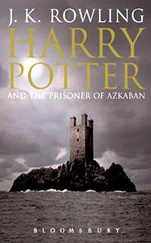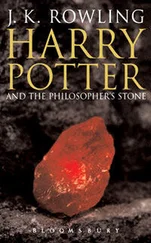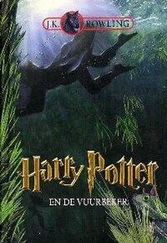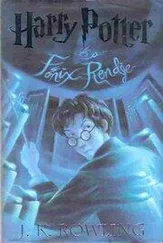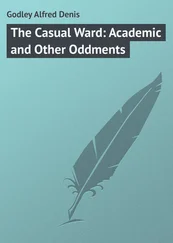(But she knew why she was doing it, really. She wanted to win for Barry. He had told her all about coming to St Thomas’s. His classmates had invited him home to play; he, who had been living in a caravan with his mother and two brothers, had relished the neat and comfortable houses of Hope Street, and been awed by the big Victorian houses on Church Row. He had even attended a birthday party in that very cow-faced house that he had subsequently bought, and where he had raised his four children.
He had fallen in love with Pagford, with the river and the fields and the solid-walled houses. He had fantasized about having a garden to play in, a tree from which to hang a swing, space and greenness everywhere. He had collected conkers and taken them back to the Fields. After shining at St Thomas’s, top of his class, Barry had gone on to be the first in his family to go to university.
Love and hate , Parminder thought, a little frightened by her own honesty. Love and hate, that’s why I’m here… )
She turned over a page of Kay’s documents, feigning concentration.
Kay was pleased that the doctor was scrutinizing her papers so carefully, because she had put a lot of time and thought into them. She could not believe that anybody reading her material would not be convinced that the Bellchapel clinic ought to remain in situ .
But through all the statistics, the anonymous case studies and first-person testimonies, Kay really thought of the clinic in terms of only one patient: Terri Weedon. There had been a change in Terri, Kay could feel it, and it made her both proud and frightened. Terri was showing faint glimmerings of an awakened sense of control over her life. Twice lately, Terri had said to Kay, ‘They ain’ takin’ Robbie, I won’ lerrem,’ and these had not been impotent railings against fate, but statements of intent.
‘I took ’im ter nursery yest’day,’ she told Kay, who had made the mistake of looking astonished. ‘Why’s tha’ so fuckin’ shockin’? Aren’ I good enough ter go ter the fuckin’ nurs’ry?’
If Bellchapel’s door was slammed shut against Terri, Kay was sure it would blow to pieces that delicate structure they were trying to build out of the wreckage of a life. Terri seemed to have a visceral fear of Pagford that Kay did not understand.
‘I ’ate that fuckin’ place,’ she had said, when Kay had mentioned it in passing.
Beyond the fact that her dead grandmother had lived there, Kay knew nothing of Terri’s history with the town, but she was afraid that if Terri was asked to travel there weekly for her methadone her self-control would crumble, and with it the family’s fragile new safety.
Colin had taken over from Parminder, explaining the history of the Fields; Kay nodded, bored, and said ‘mm’, but her thoughts were a long way away.
Colin was deeply flattered by the way this attractive young woman was hanging on his every word. He felt calmer tonight than at any point since he had read that awful post, which was gone from the website. None of the cataclysms that Colin had imagined in the small hours had come to pass. He was not sacked. There was no angry mob outside his front door. Nobody on the Pagford Council website, or indeed anywhere else on the internet (he had performed several Google searches), was demanding his arrest or incarceration.
Fats walked back past the open door, spooning yoghurt into his mouth as he went. He glanced into the room, and for a fleeting moment met Colin’s gaze. Colin immediately lost the thread of what he had been saying.
‘…and… yes, well, that’s it in a nutshell,’ he finished lamely. He glanced towards Tessa for reassurance, but his wife was staring stonily into space. Colin was a little hurt; he would have thought that Tessa would be glad to see him feeling so much better, so much more in control, after their wretched, sleepless night. Dreadful swooping sensations of dread were agitating his stomach, but he drew much comfort from the proximity of his fellow underdog and scapegoat Parminder, and from the sympathetic attention of the attractive social worker.
Unlike Kay, Tessa had listened to every word that Colin had just said about the Fields’ right to remain joined to Pagford. There was, in her opinion, no conviction behind his words. He wanted to believe what Barry had believed, and he wanted to defeat the Mollisons, because that was what Barry had wanted. Colin did not like Krystal Weedon, but Barry had liked her, so he assumed that there was more worth in her than he could see. Tessa knew her husband to be a strange mixture of arrogance and humility, of unshakeable conviction and insecurity.
They’re completely deluded , Tessa thought, looking at the other three, who were poring over some graph that Parminder had extracted from Kay’s notes. They think they’ll reverse sixty years of anger and resentment with a few sheets of statistics. None of them was Barry. He had been a living example of what they proposed in theory: the advancement, through education from poverty to affluence, from powerlessness and dependency to valuable contributor to society. Did they not see what hopeless advocates they were, compared to the man who had died?
‘People are definitely getting irritable with the Mollisons trying to run everything,’ Colin was saying.
‘I do think,’ said Kay, ‘that they’ll be hard-pushed, if they read this stuff, to pretend that the clinic isn’t doing crucial work.’
‘Not everybody’s forgotten Barry, on the council,’ said Parminder, in a slightly shaky voice.
Tessa realized that her greasy fingers were groping vainly in space. While the others had talked, she had single-handedly finished the entire bowl of crisps.
It was a bright, balmy morning, and the computing lab at Winterdown Comprehensive became stuffy as lunchtime approached, the dirty windows speckling the dusty monitors with distracting spots of light. Even though there was no Fats or Gaia here to distract him, Andrew Price could not concentrate. He could think of nothing but what he had overheard his parents discussing the previous evening.
They had been talking, quite seriously, about moving to Reading, where Ruth’s sister and brother-in-law lived. With his ear turned towards the open kitchen door, Andrew had hovered in the tiny dark hall and listened: Simon, it appeared, had been offered a job, or the possibility of a job, by the uncle whom Andrew and Paul barely knew, because Simon disliked him so much.
‘It’s less money,’ Simon had said.
‘You don’t know that. He hasn’t said—’
‘Bound to be. And it’ll be more expensive all round, living there.’
Ruth made a noncommital noise. Scarcely daring to breathe in the hall, Andrew could tell, by the mere fact that his mother was not rushing to agree with Simon, that she wanted to go.
Andrew found it impossible to imagine his parents in any house but Hilltop House, or against any backdrop but Pagford. He had taken it for granted that they would remain there for ever. He, Andrew, would leave one day for London, but Simon and Ruth would remain rooted to the hillside like trees, until they died.
He had crept back upstairs to his bedroom and stared out of the window at the twinkling lights of Pagford, cupped in the deep black hollow between the hills. He felt as though he had never seen the view before. Somewhere down there, Fats was smoking in his attic room, probably looking at porn on his computer. Gaia was there too, absorbed in the mysterious rites of her gender. It occurred to Andrew that she had been through this; she had been torn away from the place she knew and transplanted. They had something profoundly in common at last; there was almost melancholy pleasure in the idea that, in leaving, he would share something with her.
Читать дальше
